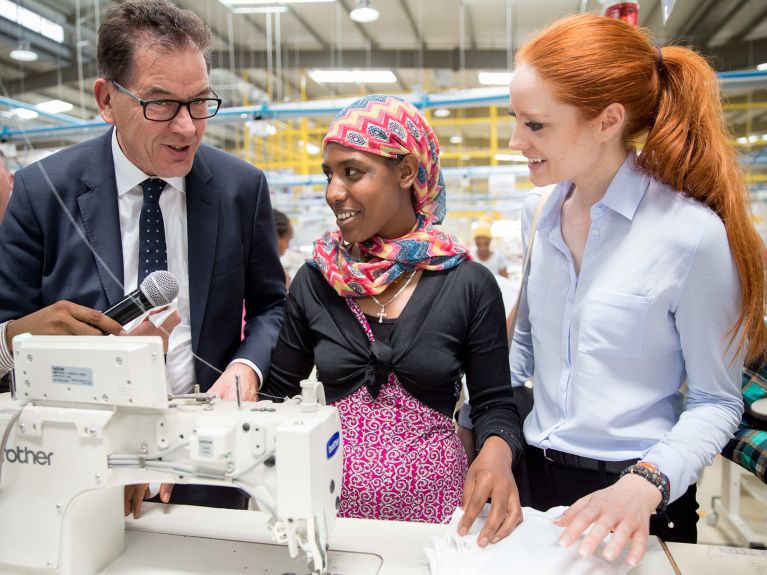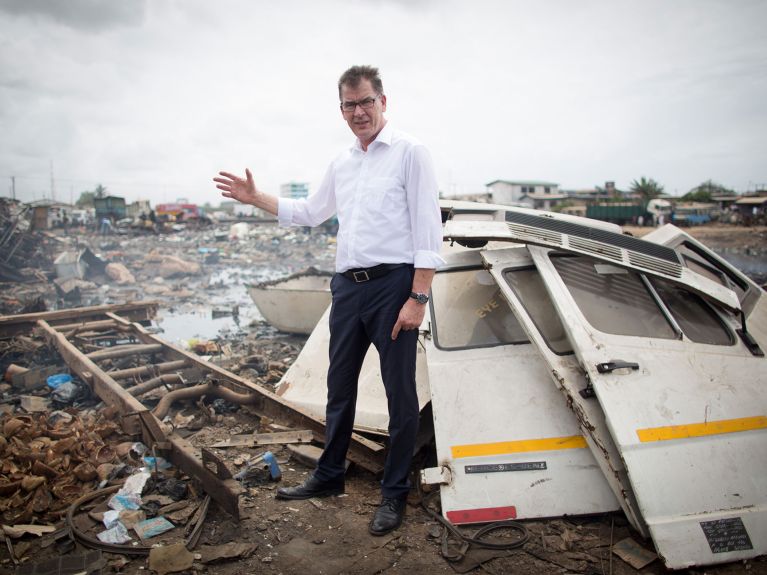Partnerships for reform
Since 2017 Germany has been supporting African countries with a new programme. Federal Minister of Development Müller takes stock.

Federal Minister Müller, since the introduction of reorganized development cooperation with Africa, you have been promoting ‘reform partnerships’. Which conditions does a country have to satisfy to become a reform partner?
The basic condition is: Our partners in Africa must achieve more themselves. After all, individual initiative is the key to development. This means they have to deliver measurable progress in good governance, democracy, upholding human rights and the fight against corruption – based on international indicators, such as those of the World Bank. We offer enhanced reform partnerships to countries that join us on this path to reform. This means that we strengthen support for these countries in the administrative development of such things as auditing offices, tax departments or in the energy sector.
Countries that implement the reforms are also more successful in the economic sector. The results of the World Bank’s ‘Doing Business Report’ clearly illustrate this. After all, nobody is willing to invest without reliable administrative structures and without independent courts of law. Consequently, the reform partnerships are also a seal of quality for partners and investors.
Individual initiative is the key to development.
Recently you signed reform partnerships with Ethiopia, Senegal and Morocco. What are the areas of emphasis with these countries?
In Ethiopia we are working together to reform the framework conditions for the private sector and agriculture. Prime Minister and Nobel Prize winner Abiy Ahmed is restructuring his country into a market economy at a breath-taking pace. We want to help promote the huge investment potential in infrastructure, energy and agriculture.
The German-Moroccan reform partnership is concentrating on the development of the banking and financial system, in order to grant more credits to medium-sized enterprises at favourable conditions. These investments are helping to create urgently needed jobs for young people.
In Senegal we are working on structural reforms for sustainable economic development and are promoting reforms in labour law and land rights, as well as strengthening the middle classes and modernizing vocational education.

The first partner countries in 2017 included Tunisia, Ghana and Côte d’Ivoire. In which areas has it been possible to make the most progress so far?
Ghana has managed to increase the tax revenue fourfold with our help. An additional 900,000 people are now paying taxes. This shows that the new programme supporting reforms is working.
With Côte d’Ivoire and Ghana we are also working closely together in the area of renewable energy and energy efficiency. For instance, Côte d’Ivoire passed a plan for nationwide electrification, an essential precondition for private enterprise.
And in Tunisia the anti-corruption authority and the Tunisian investment agency were expanded, and a development bank for medium-sized enterprises was founded. All of this creates important impulses for the economy and jobs. As a result, more than 60,000 new jobs have been created over the past few years.
Are there more countries that can hope to establish a reform partnership?
Basically, reform partnerships are open to all countries that want to join hands with us on the path to reform. But at the moment we first want to gather experience with the existing reform partnerships and learn from these together.
Interview: Martin Orth


